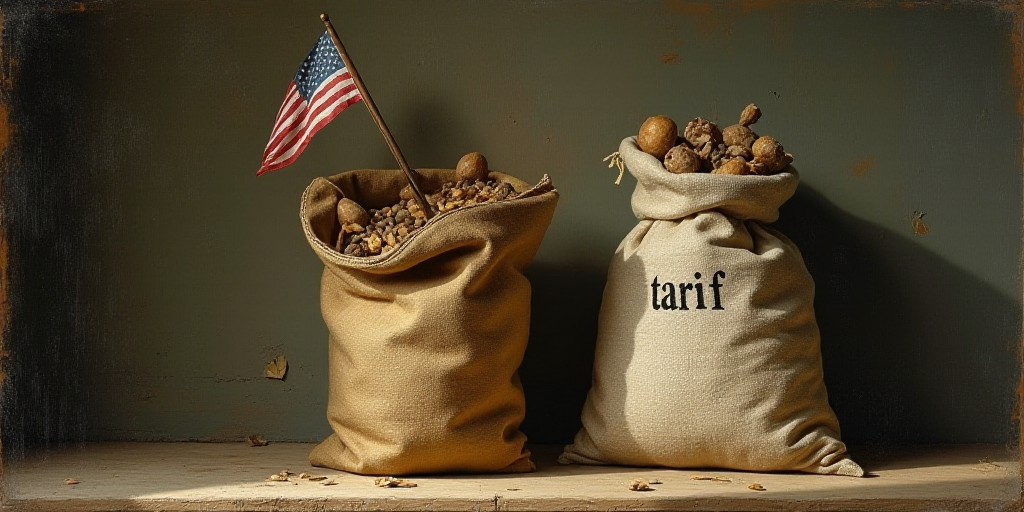Introduction
In a popular scene from the successful American television series Succession, a cunning media family patriarch becomes enraged upon discovering that none of his children know the price of a gallon of milk. He understands that such detachment between decision-makers and the common people is a recipe for failed leadership. Now, this same tension is unfolding not on our screens but in the White House.
Trump’s High Tariffs: A Radical Move with Consequences
President Donald Trump has imposed the highest and most radical tariffs in modern history. Ostensibly a response to a national emergency, these import taxes aim to drive up the prices of foreign goods until U.S. manufacturing becomes competitive, despite significantly higher labor costs in the United States.
Potential Impact on Consumers
While many agree that the U.S. should maintain the ability to manufacture certain strategically important items, it is likely that these broad tariffs will significantly increase consumer prices. Currently, many importers and retailers may be avoiding price hikes in hopes that the tariffs will be reversed. However, if they persist, this will change.
White House Indifference and Contrasting Responses
The White House appears indifferent to this prospect. According to U.S. Treasury Secretary Scott Besson (former hedge fund manager), “Access to affordable products is not the essence of the American dream.” Or, as Trump put it: “Well, maybe kids will have two dolls instead of 30, you know? And maybe those two dolls will cost a couple of dollars more than usual.”
These dismissive comments about the consequences for American consumers starkly contrast with the administration’s attentive response to financial markets last month. When the bond market wobbled and Wall Street titans complained, Trump granted most countries a reprieve from the highest tariffs.
Economic Hardship: A Reality for Most Americans
Trump and his advisors are trivializing and misrepresenting the true economic difficulties that high tariffs could cause. Most Americans already struggle to meet their basic needs. The pre-tax income required for an average household of two adults and two children to cover basic needs (housing, childcare, food, transportation, education, clothing, and personal care items) was $106,903 in 2024. However, around 60% of households earn less than $100,000 annually, 50% less than $86,000, and approximately 14% less than $25,000.
Even if one parent stops working to save on childcare, the single breadwinner would need $85,074. “Basic needs” do not include eating out, leisure activities, vacations, savings, retirement, or other long-term financial investments. These are “luxuries” that require even more money.
Importance of Imported Goods
Given this, it’s no surprise that a large portion of basic needs is imported. About 59% of fresh fruits and vegetables consumed in the U.S. (including 90% of bananas and 70% of tomatoes) are imported, as is 25% of orange juice. Children in growth stages need new clothes and shoes regularly, more than 95% of which are imported. The same goes for school supplies: two-thirds of all pencils sold in the U.S. are imported, along with many books and paper used for printing books domestically.
Personal items for adults will also be affected. For example, nearly all razors are imported.
Conclusion: The Broader Impact on American Families
The price increases resulting from tariffs will make life harder for American families in countless ways, extending beyond “dolls.” American children will eat fewer fresh fruits and vegetables, wear less new clothing, and have fewer books, pens, and paper to learn reading and writing.
Lack of Empathy in the Trump Administration
It’s unsurprising that the Trump administration shows such a lack of empathy. None of the top economic policy makers in the U.S. have had to consider the cost of food, books, clothing, or a gallon of milk for a long time. Trump inherited $413 million, and his top economic advisors are extraordinarily wealthy financiers. Besson is reportedly worth over $521 million, and Commerce Secretary Howard Lutnick is worth more than $2 billion.
Policy Perspective vs. Consumer Needs
Even when the administration acknowledges the challenges posed by tariffs, it reflects the industry’s perspective rather than that of consumers. Trump exempted smartphones, computers, and other electronic devices because CEOs of major tech companies raised objections, barely mentioning American households that rely on affordable imported laptops and tablets for work and study. If tariffs are imposed on these products, key technologies will become unaffordable for many Americans.
This does not mean successful businesspeople should not serve in government. Having lawmakers with practical experience and understanding of financial market inner workings offers numerous benefits. However, these credentials should not come at the expense of empathy for ordinary people. Americans need leaders who understand the cost of basic needs and grasp the impact of price increases on their daily lives. As Trump and his cabinet negotiate with trading partners, they should keep these Americans in mind.
About the Author
Nancy Qian, Professor of Economics at Northwestern University, is co-director of the Global Poverty Research Lab at Northwestern University, founding director of the China Economic Lab, and visiting professor at the Einaudi Institute for Economics and Finance.
Copyright
Project Syndicate, 2025
www.project-syndicate.org






